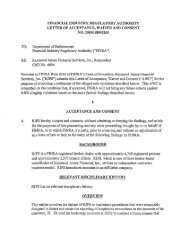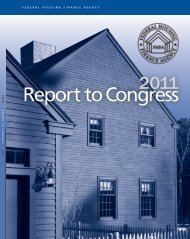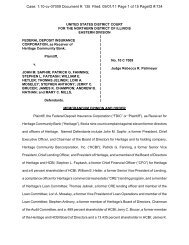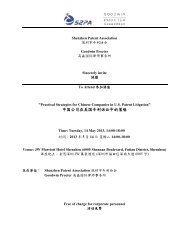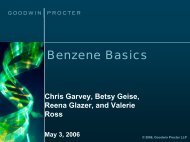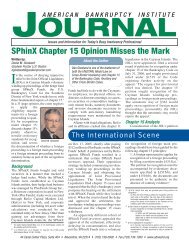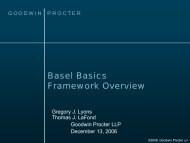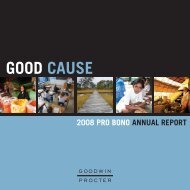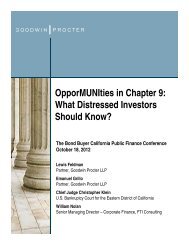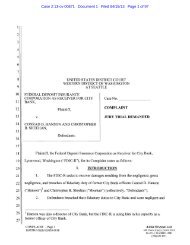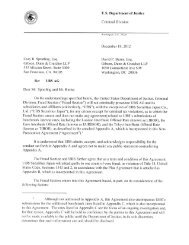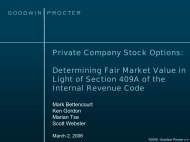Krueger v. Ameriprise Financial, Inc. - Blog
Krueger v. Ameriprise Financial, Inc. - Blog
Krueger v. Ameriprise Financial, Inc. - Blog
You also want an ePaper? Increase the reach of your titles
YUMPU automatically turns print PDFs into web optimized ePapers that Google loves.
CASE 0:11-cv-02781-SRN-JSM Document 67 Filed 11/20/12 Page 28 of 44<br />
documents and the bank, trust company, or insurance company receives no more than<br />
reasonable compensation. 7<br />
ERISA § 408(b)(8) was enacted to allow “banks, trust companies and insurance<br />
companies” to continue their “common practice” of investing their plans’ assets in their<br />
own pooled investment funds. See H.R. Conf. Rep. No. 93-1280 (Aug. 12, 1974),<br />
reprinted in 1974 U.S.C.C.A.N. 5038, 5096; see also U.S. Dep’t of Labor Adv. Op. 82-<br />
022 A, 1982 ERISA LEXIS 47 (May 12, 1982) (§ 408(b)(8) exempts fees charged for<br />
managing investments in pooled separate accounts and collective trusts). As the<br />
Department of Labor has recognized, it would be “contrary to normal business practice<br />
for a company whose business is financial management to seek financial management<br />
services from a competitor.” Notice of Proposed Rulemaking, Participant Directed<br />
Individual Account Plans, 56 Fed. Reg. 10724 (Mar. 13, 1991).<br />
7<br />
The statute provides that the following is not a prohibited transaction:<br />
(8) Any transaction between a plan and (i) a common or collective trust fund<br />
or pooled investment fund maintained by a party in interest which is a bank or<br />
trust company supervised by a State or Federal agency or (ii) a pooled<br />
investment fund of an insurance company qualified to do business in a State,<br />
if—<br />
(A) the transaction is a sale or purchase of an interest in the fund,<br />
(B) the bank, trust company, or insurance company receives not more than<br />
reasonable compensation, and<br />
(C) such transaction is expressly permitted by the instrument under which<br />
the plan is maintained, or by a fiduciary (other than the bank, trust<br />
company, or insurance company or an affiliate thereof) who has authority<br />
to manage and control the assets of the plan.<br />
ERISA § 408(b)(8), 29 U.S.C. § 1108(b)(8).<br />
28



